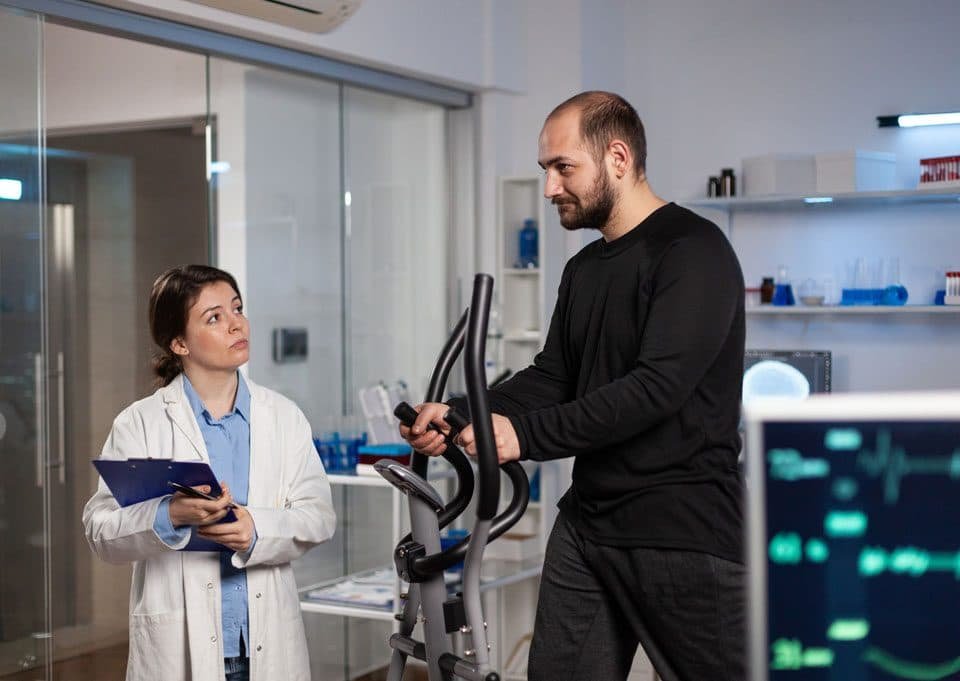How Long Does Alcohol Remain in Your Body?
There are several ways to avoid work-related injuries, including providing training, safeguarding mechanisms for risk management, risk assessments, and safety reviews. Employment drug and alcohol testing is another simple and preventive measure. It is an efficient method of establishing a safe working environment. In safety-sensitive work environments, this procedure can reduce the risk of hiring people who may pose a severe threat to themselves and others. Taking this precautionary measure has resulted in a significant reduction in drug-related workplace accidents.
This article will tell you all about drinking alcohol before your alcohol test, how long alcohol stays in your system, and other relative matters.
How Long Does It Take to Feel the Effects of Alcohol?
In a matter of a few minutes, you will begin to feel the effects of alcohol. It quickly goes into your blood from your stomach and small intestine when you consume alcohol prior to reaching your nervous system (brain and spinal cord). Because alcohol can depress the central nervous system, it alters your senses, perceptions, emotions, and movements.
Alcohol intake may make you feel relaxed and loose or less tense, but the more you drink, the more intoxicated you will become. For some, this may mean becoming more friendly and chatty, while for others, it may mean displaying anger or violence.
Other signs of intoxication caused by alcohol include:
- Euphoria
- Absence of inhibitions
- Walking difficulty (ataxia)
- Coordination problems
- Speech stuttered
- Poor reaction time
- Ineffective decision-making (such as driving under the influence or having unprotected sex)
How Long Does Alcohol Last in Your System?
Ethanol has a half-life of 4 to 5 hours, meaning it takes that long to remove half of the alcohol consumed from the blood. Alcohol absorption into the body is usually faster than its metabolization for most people.
One standard drink, for example, will significantly raise a person’s blood-alcohol levels by about 0.02 percent, but the body can only eliminate about 0.016 percent per hour on average. As a result, having one alcoholic drink per hour will result in a rise in your blood alcohol concentration (BAC). It rises much faster if you drink more than one per hour.
Alcohol is metabolized by the body. Your body oxidizes ethanol to acetaldehyde. Acetaldehyde is decomposed into acetic acid, which is then converted into carbon dioxide and water. The liver metabolizes most of the alcohol you drink, but the body excretes about 5% of it through sweat, breath, urine, feces, and saliva.
The length of time alcohol remains detectable in the body is determined by a number of factors, for example, the type of drug test used. Some tests detect alcohol for a shorter period of time, while others detect it for up to three months.
Below is an estimate of the length of time different testing methods can detect alcohol or the detection window.
Breath
Alcohol can be spotted in your exhale for up to 24 hours using a breathalyzer test.
Urine
Alcohol can be identified in the urine for three up to five days using the ethyl glucuronide (EtG) metabolite or for ten to twelve hours using the traditional method.
Blood
For up to 12 hours, alcohol can be detected using a blood test.
Saliva
A saliva test for alcohol can be positive between 24 and 48 hours.
Hair
Alcohol, like many other drugs, can be spotted using a hair follicle drug test for up to 90 days.
What Factors Affect Detection Time?
There are several factors that the timetable for detecting alcohol in the body depend on them, such as
- Metabolism
- Body mass
- Age
- Hydration level
- Physical activity
- Health conditions, etc.
In addition, the following factors make it difficult to estimate an exact time when alcohol will show up on a drug test.
Genetics
Your family history influences the development of substance use disorders and addictions. It also affects how fast the body processes and excretes alcohol.
Sex
Alcohol tends to remain in the system of women for a longer period of time than that of men since women have proportionally more body fat and less body water in their bodies.
Body Fat
Alcohol stays in your body for longer if you have a lot of fat.
Ethnicity
According to research, people of East Asian heritage are more likely to have difficulty metabolizing alcohol because they do not produce enough of a key enzyme that aids in the metabolization of alcohol in the liver. As a result of the excess alcohol in the body, blood and liver vessels dilate, causing a flushing (redness and heat) reaction in the face and neck as well as headaches, dizziness, palpitations, and nausea. This is also known as “Asian flush” or “Asian glow.”
Age
The older you get, the more slowly your liver will work, so it takes longer to excrete alcohol. Many older adults also take medications that can impair liver function, making the process slower.
Food Consumption
Approximately 20% of the ethanol in alcoholic drinks is absorbed into the blood from the stomach, with the remaining absorbed from the small intestine. Intoxication occurs at a slower rate the longer alcohol remains in the stomach. The absorption of alcohol will be reduced if you eat before you drink, and if you snack while you’re drinking, you’ll extend your detection period.
Medications
Certain medicines can affect how alcohol is absorbed in the body. Other medications can even increase the impacts and increase intoxication. Always tell your doctor how much alcohol you drink. Medications that have been shown to interact with alcohol include
- Anti-anxiety medications
- Antidepressants
- Antibiotics
- Medication for allergies
- Medication for diabetes
Use
How regularly and quickly you drink alcohol, and the amount of alcohol in your beverage, can all affect how long ethanol remains in your system. For instance, if you binge drink (five or more drinks for men or four for women in one sitting), it can take several hours for the alcohol to leave your system.
It is conceivable that your system will still contain sufficient alcohol the next morning to mess up a urine or blood test for driving under the influence or DUI. You would have a difficult time passing a test designed to identify the presence of any alcohol.
How to Clear Your System Out of Alcohol?
The average person excretes 0.016 BAC per hour, despite how quickly they absorb alcohol. It will not have any effect on the elimination process if you drink coffee, water, take a shower, or vomit.
There is one way to lower your blood alcohol level if you know you’re going to have to take a test, such as a breath, blood, or urine test, to check for the presence of alcohol in your system. The way is to postpone the test as long as possible after your previous drink. This method is effective since only time can decrease your BAC.
The table below demonstrates the average amount of time it takes for alcohol to leave your system:
| BAC Level | Hours Until 0 BAC |
| 0.016 | 1 |
| 0.05 | 3.75 |
| 0.08 | 5 |
| 0.10 | 6.25 |
| 0.16 | 10 |
| 0.20 | 12.5 |
| 0.24 | 15 |
The times listed above represent the metabolic rate of a healthy, functioning liver. If you are a heavy or long-term drinker, your liver may take longer to clear alcohol from your system.
What are the Symptoms of Overdose?
Too much consumed alcohol in a short time can result in alcohol poisoning, which is a medical emergency. Based on the CDC, six people die each day as a result of alcohol poisoning. Excessive alcohol consumption or mixing alcohol with other drugs or medication can end up causing the parts of your brain that control your breathing, heart rate, and other basic life-sustaining operations to shut down.
Here you can see some symptoms of overdose:
- Confusion
- Excessive sleeplessness
- Seizures
- Heart rate reduction
- Loss of consciousness
- No gag reflex (This reflex prevents choking when throwing up)
- Skin that is clammy, pale, or blue-tinged
- Body temperature is too low (hypothermia)
- Slow or random breathing
- Unconscious vomiting (in a way that you do not wake up during or after throwing up)
Drinking the Night Before A Drug Test
Being allowed to drink alcohol the night prior to your test depends on the reason and the type of test. It’s possible for alcohol to show up as an illegal substance during a drug test if you drink it close to the time. Please drink with caution if you decide to drink the night before a drug test.
Alcohol and Drug Testing Near me in Las Vegas
For many industries, such as transportation, construction, engineering, and mining, where high levels of focus and precision are required, the first mistake is the last one. It is particularly important in today’s world of easy access to drugs, alcohol, and other intoxicating substances. You could avoid the stress, confusion, and potential crisis of dealing with a misbehaving employee by taking one precautionary step.
Southern Nevada Occupational Health Center (SNOHC) has conducted a complete range of drug and alcohol testing in Las Vegas for more than a decade. If you need to do this or other tests, you can get an appointment online. Also, refer to the main page of the website.




